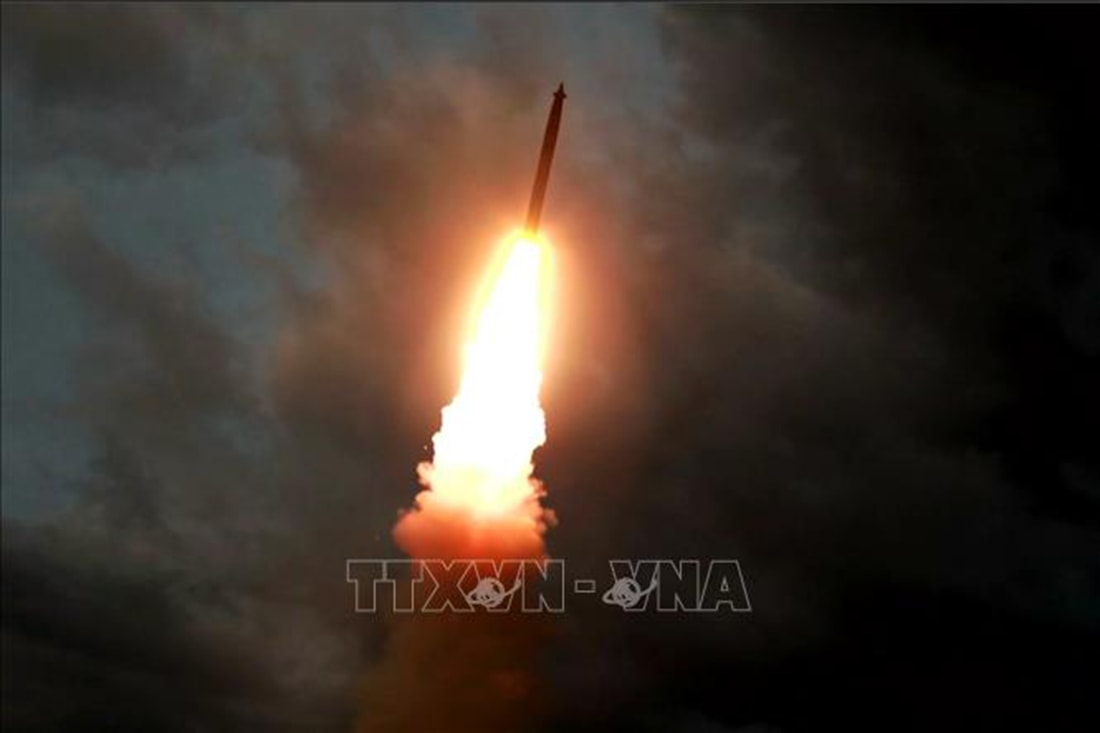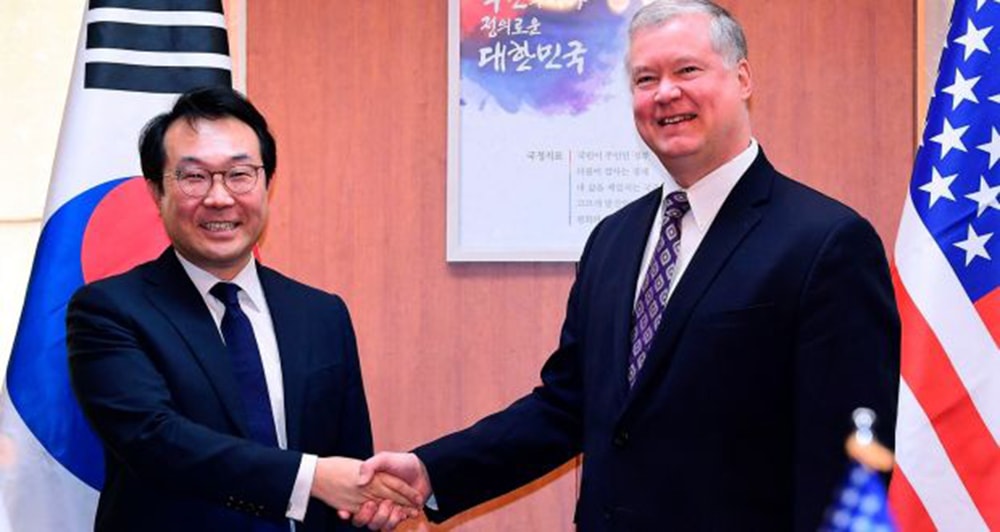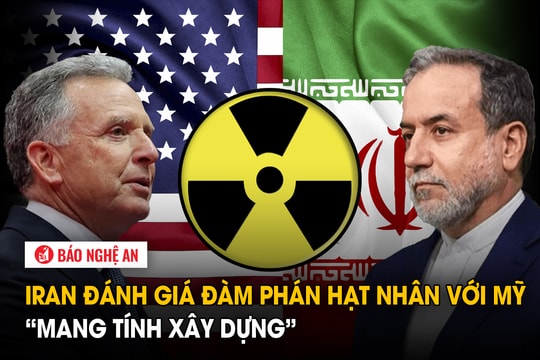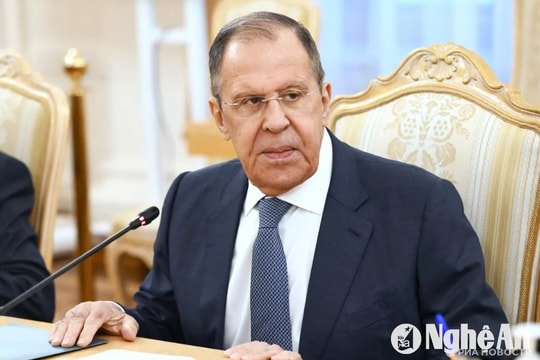Will efforts to salvage US-North Korea negotiations succeed?
(Baonghean) - As the "year-end deadline" for concessions and a change in negotiating attitude that North Korean leader Kim Jong-un set for President Donald Trump is approaching, US Special Envoy for North Korea Stephen Biegun is on a 3-day visit to South Korea.
The visit has become even more “burdensome” with a series of new tense developments in recent days between the US and the DPRK. A breakthrough is certainly unlikely, but public opinion is concerned whether this diplomatic move will bring about any modest results that can contribute to saving the US-DPRK dialogue process that is still at a standstill?
Increasing pressure
As the deadline set by North Korea for the US by the end of this year to make necessary concessions approaches, Pyongyang has continued to put pressure on Washington. Most recently, on December 14, North Korea announced that it had conducted an “important test” at its Sohae satellite launch site. The test took place just a week after North Korea conducted another test that Pyongyang also stressed was “very important”. KCNA quoted North Korean Army Chief of Staff Pak Jong-chon as saying that recent defense technology tests were aimed at countering US nuclear threats and strengthening North Korea’s strategic nuclear deterrence.
 |
| Ballistic missile test launch from an undisclosed location in North Korea on July 31, 2019. Photo: AFP/TTXVN |
“ICBM gift” is North Korean leader Kim Jong-un's warning to the US.
South Korean military experts commented that with recent tests - especially the test on December 7, North Korea is very likely to have activated or tested the engine for a heavy-lift rocket or an intercontinental ballistic missile (ICBM) using liquid fuel. Although not announced, if verified, it is clear that the "ICBM gift" is a warning from North Korean leader Kim Jong-un to the US that the country is considering launching long-range missiles. This is a sign that North Korea seems to be running out of patience with Washington as the year-end deadline is approaching! Not only has North Korea continuously tested weapons, it has also initiated a "war of words" to attack the US, making public opinion worry that both will return to the original starting line.
Taking place in such a context, Special Envoy Stephen Biegun's visit to South Korea carries the burden of having to salvage negotiations with North Korea. It is both a signal that the US still wants to maintain dialogue but on the other hand, it must also maintain a firm stance that Washington is not easily pressured or threatened by Pyongyang in the dialogue process! Therefore, the meeting between Mr. Biegun and his South Korean counterpart Lee Ho-hoon and South Korean officials this time will probably have many issues to discuss. Especially when US President Donald Trump recently warned that North Korea could lose everything if it acts provocatively. And North Korea also previously emphasized that it was forced to choose a "new path" if the US did not make new concessions.
 |
| US Special Representative for North Korea Stephan Biegun (right) and his South Korean counterpart Lee Ho-hoon. Photo: Getty |
In retrospect, negotiations between the two countries have been deadlocked for a long time, since the first and second Summits. Most recently, the working-level negotiations between the two countries held in Stockholm, Sweden in October this year also completely collapsed.
Promote intermediary factors
Explaining the current deadlock in US-North Korea relations, former Secretary of Defense James Mattis commented that the US has indeed tried to restrain North Korea in recent times, but Pyongyang is increasingly becoming a greater threat than before, not to mention much greater. It should be recalled that since 2011 - that is, nearly 9 years - Leader Kim Jong-un has tested more than 90 missiles, 4 nuclear weapons tests - more than the total number of times his father and grandfather tested in a period of 27 years. This is the reason why two veterans of the US Department of Defense, Mr. James Mattis and Leon Panetta, had to emphasize the importance of the US cooperating with allies such as Japan and South Korea in the current new context.
 |
| The latest satellite images posted by CNN show that North Korea may be continuing to prepare for testing engines used to power satellite launchers and intercontinental ballistic missiles. Photo: CNN |
This is really meaningful when President Donald Trump is still entangled in the impeachment process in the US Congress led by the Democrats. On the other hand, it is difficult for Mr. Trump himself to make concessions to North Korea; because this will only increase the criticism within the US political arena aimed at the President personally. Another reality is that the intermediary catalysts such as South Korea and Japan have not played their necessary roles in the past. Even a Winter Olympics that could have eased inter-Korean relations like in 2018 no longer exists!
North Korea has stressed it will be forced to choose a “new path” if the US does not make new concessions.
At this time, there is information that Pyongyang may announce the end of negotiations with the US at the plenary session of the Central Committee of the Workers' Party of Korea at the end of December, if the US does not make a new proposal. In case the US President cannot make concessions, North Korea will be forced to take tough actions as declared, then an extremely bad scenario will happen to the Korean peninsula. That is something that neither side wants in the current context. Therefore, despite many predictions that there will be no breakthrough, this visit to South Korea by Special Envoy Stephen Biegun - more or less - is expected to create a new step forward that can save the negotiation efforts of both sides.
 |
| A year ago, South Korean President Moon Jae-in (front right) was at the center of the denuclearization of the Korean Peninsula, helping bring the US and North Korea to the negotiating table. But this year, that role has faded. Photo: Reuters |
It is not clear whether Mr. Biegun will visit the Demilitarized Zone between the Korean and North Korean border and meet with North Korean officials, but in a statement just before his flight to South Korea, Mr. Biegun affirmed that the US still maintains a policy of seeking a denuclearized future on the Korean peninsula, despite recent tense moves.
Furthermore, it is expected that right after the stopover in South Korea, Mr. Biegun will also visit Japan until Thursday - December 19, to reaffirm close cooperation with regional allies on the North Korea issue. This is, after all, an effort by the Washington administration to avoid the worst possible scenarios! Of course, the active participation of South Korea or Japan will have to play an important part in these efforts!






.png)


